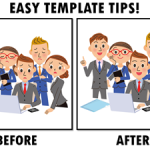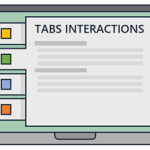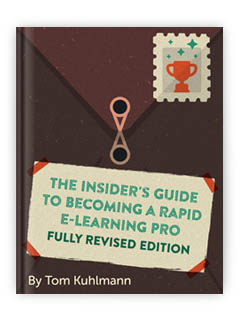A Simple Way to Work with Subject Matter Experts
April 23rd, 2019
Subject matter experts often play a key role in the development of your e-learning courses. We’ve covered this quite a bit in previous posts and in a free e-book available to you through the e-learning community. You can find the links below.
A couple of weeks ago I did a workshop where we discussed working with subject matter experts and my computer crashed. Since I had to do the presentation again, I wanted to simplify the key points just in case I didn’t have the presentation file, so I came up with the three R’s when working with subject matter experts: relationship, role, and resources.
Establish the Relationship with Your Subject Matter Experts
- Be prepared and respect their time. Often, they’re not as vested in the success of the project as you are.
- Pull together a list of questions for them to review. Don’t give them 200 questions. Start with top five to ten questions so it’s manageable.
- Get them to share their ideas about how they’d approach the training. You want to understand how they see things so you can anticipate potential conflicts.
- Ask lots of questions and don’t make assumptions.
Define the Subject Matter Expert’s Role
- You’re trying to get them to help you build an effective course. Use a backwards design to get them to think like instructional designers. What’s the appropriate action that demonstrates success? How do you measure that action? What do they need to practice to be successful? What information do they need to practice? The point is stepping away from information and focusing on actionable performance.
- Establish clear expectations built around the project’s objectives. Who does what and when? What is does the subject matter expert deliver. What are their action items? Come to a documented agreement. Don’t schedule meetings with them unless there’s an action item.
- Who is the final reviewer of the content and course? Is the subject matter expert the one who signs off on the course? Or is there someone else? Get that person involved at the forefront.
What Resources Can the Subject Matter Provide?
- What existing training content exists?
- Have the subject matter expert provide assessment questions and viable choices (or the framework for viable scenarios).
- Identify supporting resources such as articles, intranet content, policies, etc.
- Who will collect the metrics to track before and after accomplishments?
Obviously, there’s a lot more to working with the subject matter experts when building e-learning courses. Most of that is covered in the resources below. However, if you lean on the three R’s you’ll remember to cover the basics: maintain a good relationship, establish clarity around the role and expectations, and collect the appropriate resources.
Free Checklist

Here’s a free checklist to help curate all of the appropriate content and resources.
Rapid E-Learning Blog Resources
Here is a list of relevant blog posts.
- How Subject Matter Experts Help Build Great Courses
- How to Build a Great Relationship with Your Subject Matter Experts
- How to Set Expectations with Your Subject Matter Experts
- How to Get the Most Out of Your Subject Matter Experts
- Here’s How to Help Your Subject Matter Experts Build Better E-Learning Courses
- What Everyone Should Know About Working with Subject Matter Experts
- Myth 3: A Rapid E-Learning Tool in The Hands of Subject Matter Experts Is Not Good!
- How to Overcome the Challenge of Working with Subject Matter Experts
Free E-Book
Here is a free e-book with all sorts of tips to know when working with subject matter experts.
- Essential Guide to Working with Subject Matter Experts (free e-book)
Events
- Everyday. Check out the weekly training webinars to learn more about Rise, Storyline, and instructional design.
Free E-Learning Resources
 |
 |
 |
|
Want to learn more? Check out these articles and free resources in the community. |
Here’s a great job board for e-learning, instructional design, and training jobs |
Participate in the weekly e-learning challenges to sharpen your skills |
 |
 |
 |
|
Get your free PowerPoint templates and free graphics & stock images. |
Lots of cool e-learning examples to check out and find inspiration. |
Getting Started? This e-learning 101 series and the free e-books will help. |









0
comments